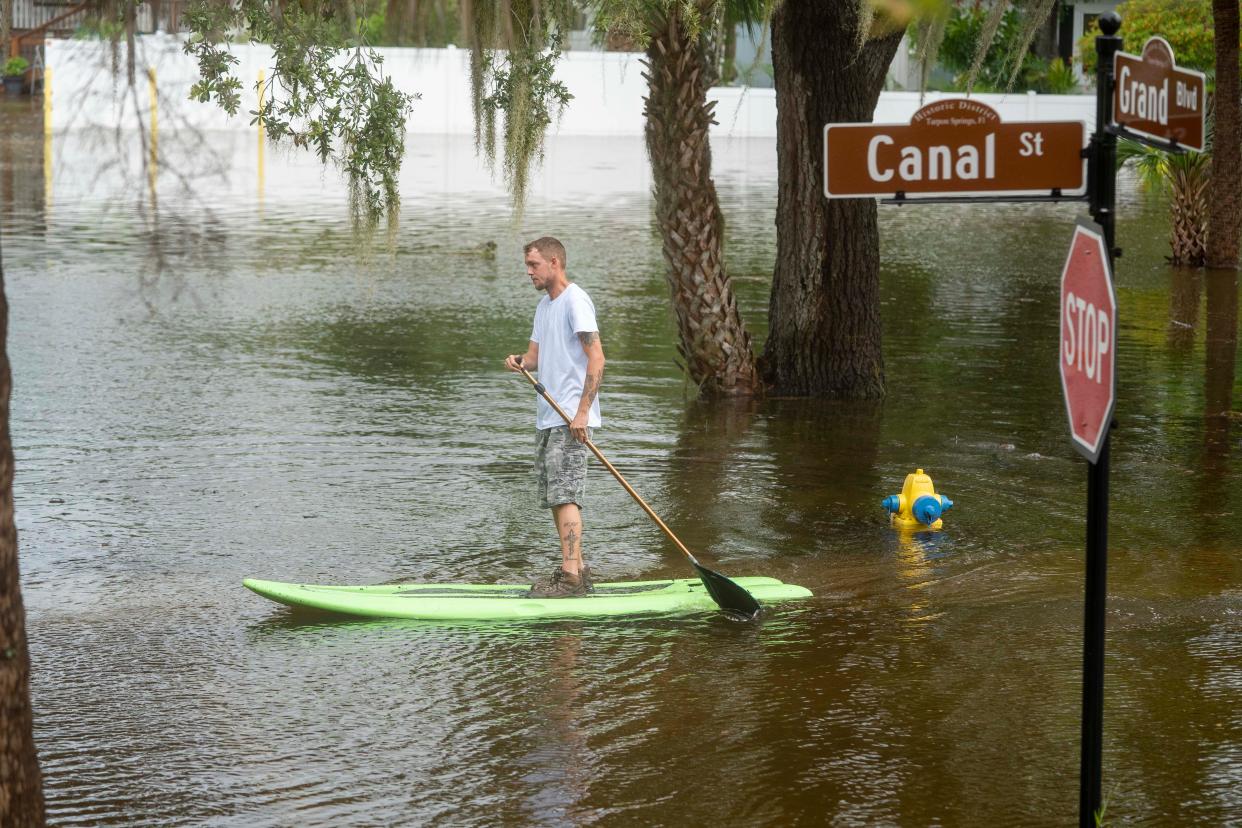Editorial: As hurricane season peaks, being prepared is the best defense

Hurricanes Hilary and Idalia roared ashore 10 days apart to remind us that it's still their season, and that we have entered what it is typically the busier half of the annual weather pattern for our part of the hemisphere.
On Friday morning, the National Hurricane Center was tracking six systems in the Atlantic Ocean, with Tropical Storm Jose the most recently named event.
Hilary, which made landfall in Mexico on Aug. 20, prompted the first-ever tropical storm watch (later changed to warning) for California, where residents are used to earthquakes, not tropical cyclones. Of course, there was an earthquake during Hilary, leading many to coin the term "hurriquake" — clever, but not funny if your life was upended.
Idalia came ashore at Florida's Big Bend as a Category 3 hurricane early Wednesday morning, leaving devastation in towns such as Steinhatchee and Horseshoe Beach. It then moved into southern Georgia and skirted the coastal Carolinas before heading into the Atlantic.
It's been a few years since we've been hit by a major storm. Powerful Hurricane Dorian was barreling toward us in 2019 before it made an abrupt turn after sitting on the Bahamas for longer than initially predicted.
Yes, we've enjoyed a good run, but we know it can't last. The unpredictability of weather in the era of climate change means we are entering uncharted territory. This summer saw some of the hottest temperatures the world has ever experienced, with the ocean off the Florida Keys hitting a record high of 101.1 degrees Fahrenheit.
More: Editorial: Shade for rec center overdue, sign of our warming world
Warmer waters increase the likelihood of stronger hurricanes.
There are three months left to go in the season, so we're reminding residents — especially newer ones who are not primed for hurricanes — to be prepared.
The usual advice of having enough water and non-perishable foods cannot be overstated.
But, more important, because Palm Beach is a barrier island, any serious storm threat invariably means evacuation orders will be issued. Everyone should have a plan in place so they can move quickly. In particular, elderly folks who live alone should make sure they have people with whom they can connect to help them get out of harm's way.
As Dorian approached, some condominiums shut off power to try to force residents to evacuate. Some people stayed, with one man calling fire rescue because he couldn't get down the stairs to exit the building without help. Stubbornness can be a fine trait, but this was not that moment.
Once an evacuation order has been issued, a state law allows condominium associations to shut off power, elevators, water and sewer.
And if you haven't yet done so, be sure to register with the town so that you can re-enter once the storm has passed. The Town Emergency Re-Entry List Program is designed to help out-of-town residents/owners/lease holders, business owners or property representatives enter after an emergency.
Hurricanes are a simply a way of life for us, and while there's always an element of the unknown, being aware and prepared is key to surviving a storm and its aftermath.
This article originally appeared on Palm Beach Daily News: Editorial: As hurricane season peaks, being prepared is the best defense

